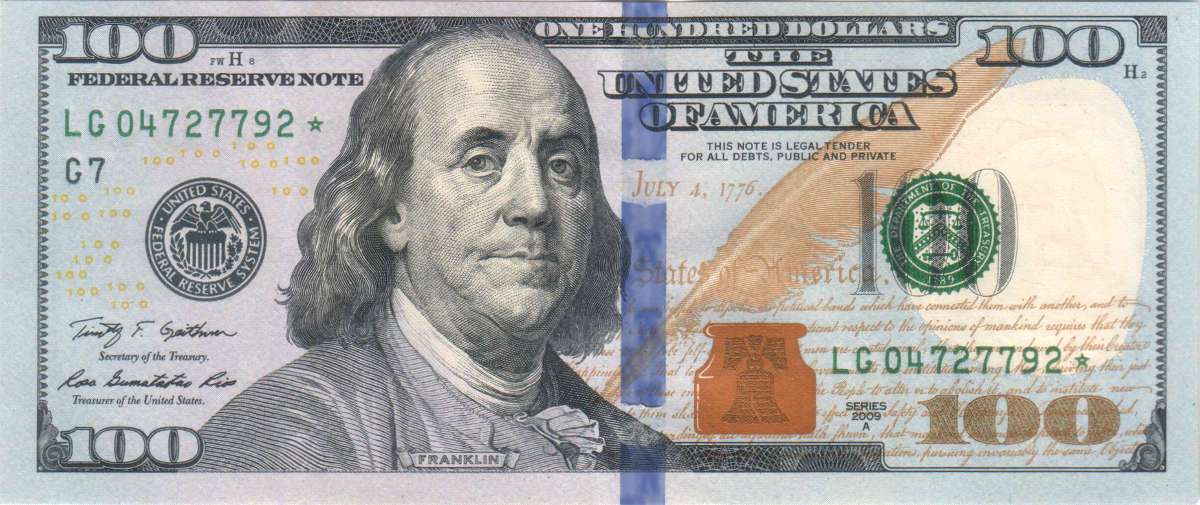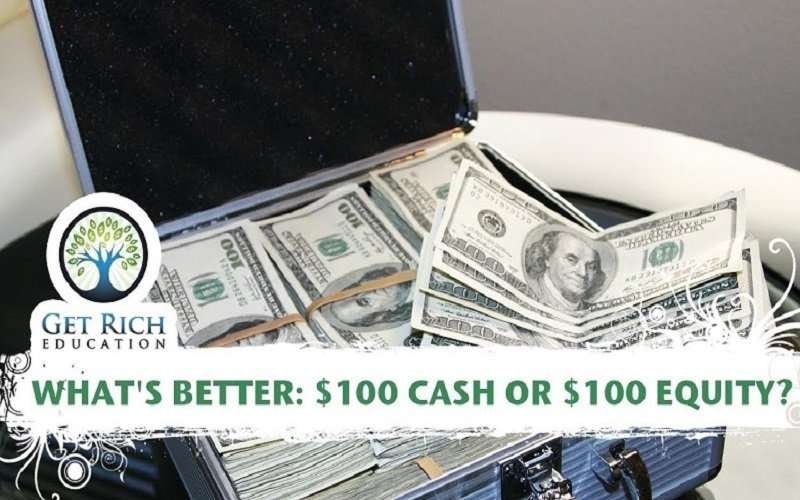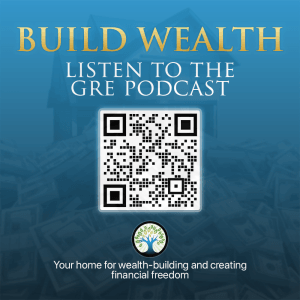Here’s your hundred dollar bill.
How would you rather take possession of it?
- $100 cash
- $100 of real estate equity?

With $100 cash, you can treat your family to a meal, buy fifty pounds of avocados, fix your cracked phone screen, or invest it for, say, a 10% rate of return.
Instead, if you take your $100 as equity in the form of an extra real estate principal payment, consider what you’ve just done:
- You have reduced your principal balance $100. With most loan types, your cash flow does not improve; you’ll owe exactly the same mortgage payment amount next month.
- You have not improved your quality of life, nor the lives of those around you.
- You have lost financial leverage. Leverage creates wealth faster than compound interest.
- You’ve lost liquidity. Your $100 is locked away. It earns zero return, regardless of your mortgage interest rate. In fact, your ROI from home equity is always zero! Home equity can never go up in value, but might go down.
How does home equity have a zero ROI? Haven’t I seen properties appreciate?
Yes, but you see, property value appreciation or depreciation occurs independent of your home equity position.
Look at this scenario …
For example, say that today your home’s value is $400,000 and your loan balance is $300,000. Because home equity is what you own minus what you owe, you have $100,000 in home equity.
Over time, your home appreciates in value from $400,000 to $500,000, a 25% return. Congratulations!
But let me ask you – did it have anything to do with the equity in your home? No, nothing.
Now instead, let’s say that over time your $400,000 home drops in value to $300,000. That’s a 25% loss in property value. But your equity went from $100,000 down to zero!
Now you understand why home equity is both unsafe and has zero ROI.
Let me ask you something. How much would you invest in a vehicle that could never go up in value but might go down? Well, as you have just learned, that’s exactly what home equity is!
Home equity is also illiquid.
When you make an extra mortgage principal payment, here’s what you’re saying to the bank:
“Hey Mr. Banker, here’s an extra $100.” Don’t pay me any interest on it. If I need it back I’ll pay you fees, and I’ll try to prove to you that I qualify again.”
That’s in a best case scenario.
Then what’s a worst case scenario?
If you suffer an emergency or lose your job, it’s difficult to retrieve your stored equity in the bank.
You had better believe that if you lose your job, you’ll have a very difficult time finding a bank that would originate a new loan with you.
Real estate investing has created more wealth for ordinary people than any other investment vehicle.
But savvy investors understand that it’s often unfavorable to have large equity positions in few properties.
Instead, have low equity positions in many properties.
Homes are meant to house families, not store cash.
I practice what I preach. I own my home.
Once equity accumulates, I separate it from my home and invest it into cash-flowing rental properties that are professionally managed by others. Here’s where I find those opportunities.
The positive income from the tenant rents exceed my home’s mortgage interest rate.
When I harvest and re-deploy equity this way, understand that equity is not lost.
Instead, it is merely transferred. Now the same amount of equity can leverage more property.
In fact, home equity is an even worse investment that I can succinctly convey here.
I’ve dedicated a few podcast episodes to this topic, like Get Rich Education podcast Episode 163.
Thought getting your money to work for you creates wealth? It doesn’t! That’s a myth. My international best-selling E-book is now 100% free, 7 Money Myths That Are Killing Your Wealth Potential. Get it here for a limited time.





Love your your tube channel. Did you know you’re a genius? I do. I always recommend you for people who want to learn.
Thanks so much, Jane! It’s almost too much praise. :o) -Keith